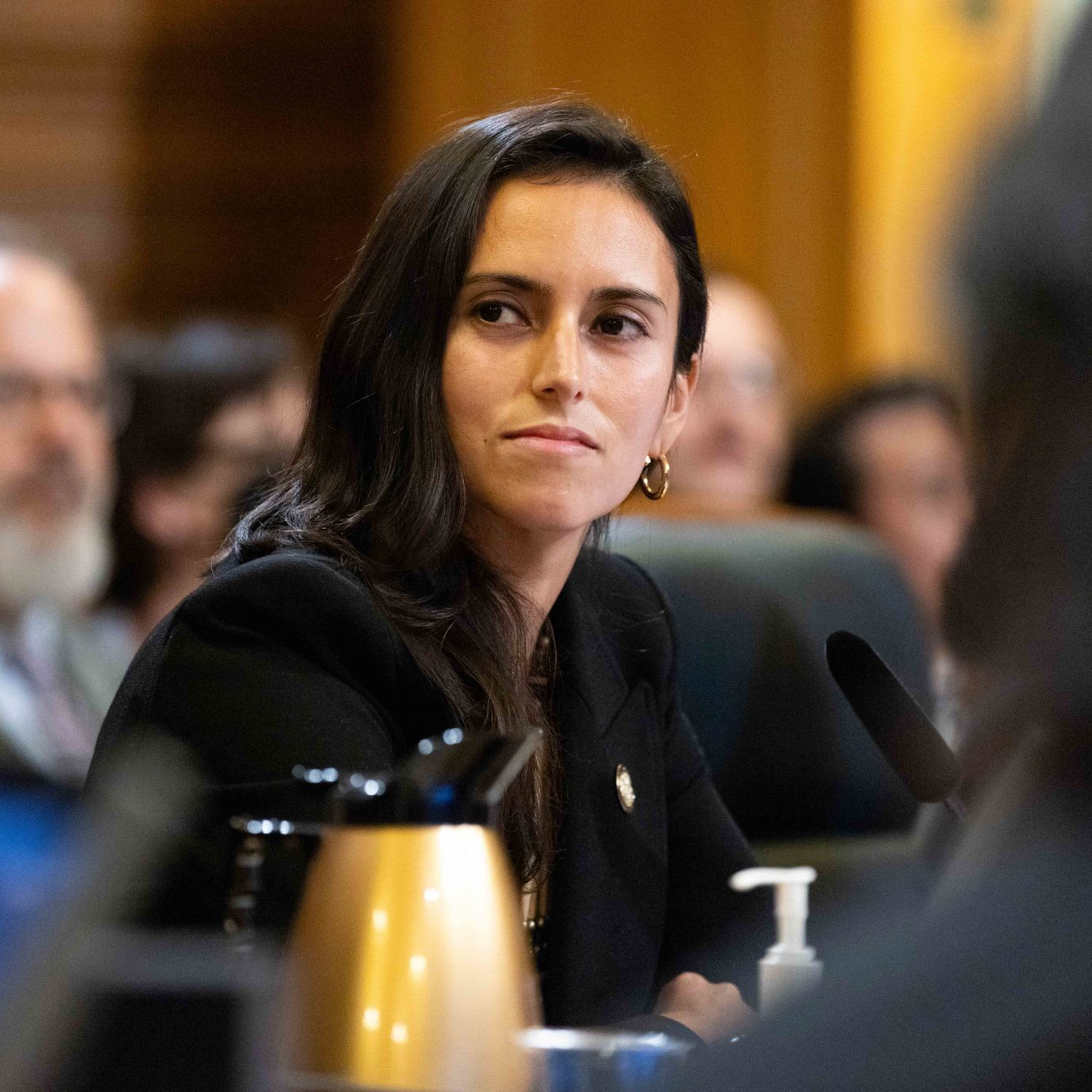Supervisor Jackie Fielder on Tuesday called for a public hearing into a multimillion-dollar contract Mayor Daniel Lurie’s office recently signed with a software company to streamline the city’s permitting process despite city staffers’ concerns over its cost and performance.
An investigation by The Standard last week found that Ned Segal, one of the mayor’s top policy chiefs, took unusual steps to secure a one-year, $5.9 million contract with OpenGov, a San Francisco company that counts more than 2,000 government agencies across the country as clients.
The company has ties to Lurie’s former nonprofit Tipping Point, with its founders collectively donating tens of thousands of dollars to the organization. In addition, Katherine August-deWilde, a member of OpenGov’s advisory board and leader of Lurie’s Partnership for San Francisco, has contributed as much as $2.85 million to his former nonprofit.
“My concerns around the OpenGov contract boil down to four elements: the cost, the quality, the procedure, and OpenGov’s relationships to the mayor,” Fielder, who is chair of the Government Audit and Oversight Committee, said in a statement. “Any one of them on their own [is] eyebrow-raising, but combined, they are cause for serious concern.”
Other parts of City Hall are also scrutinizing the deal.

The city’s Civil Service Commission, which holds public hearings about contracts, hiring, and the treatment of employees, has launched an investigation into the OpenGov contract and whether it should have been reviewed by its members before receiving approval.
Sandra Eng, the commission’s executive director, said there were plans for the OpenGov contract to go before the commission, but the city’s Department of Technology and the mayor’s office intervened. (According to the Civil Service Commission’s policies, certain software is exempt from commission approval.)
Eng said the investigation was launched after the International Federation of Professional and Technical Engineers Local 21 made a complaint about the contract.
“Too often we see millions of dollars wasted on private contracts that are unnecessary or overpriced,” said Sarah Perez, Local 21’s vice president, in a statement. “We’re alarmed and disturbed that the city had no intention to see if our existing staff could perform this work. Instead, they’re trying to sidestep the Civil Service Commission entirely.”
In addition to $1.9 million in implementation fees, the OpenGov contract will cost the city $4 million annually to streamline permitting across roughly a dozen departments.
Clariti, a company that city staff rated higher than OpenGov’s software, is already working with the Department of Public Works on a separate project. Records show that hiring Clariti to resolve the permitting issues would cost the city $1.6 million in implementation and $528,000 annually.
Contracting experts and city staffers said that Segal’s role in securing the contract was unusual from the start and that his actions were perceived as an effort to steer the contract to OpenGov. Email records show Segal and OpenGov CEO Zac Bookman were in discussions more than a month before the city put out what’s known as a “request for information” to technology companies, an informal process to assess how vendors can help on a project.

“Zac can help us think through permitting technology,” Segal wrote to Bookman and Florence Simon, the mayor’s innovation director, on April 2, adding a smiley face to a line that noted the OpenGov CEO had been “patiently waiting for the right partner.”
Fielder criticized the cost of OpenGov’s software amid a budget crisis this year that resulted in Lurie cutting social service programs to compensate for shortfalls.
“When we are told repeatedly that there is not enough money to fully fund critical services like food banks, domestic violence prevention, and immigration legal services, it is very odd to then see the mayor’s office go out of its way to offer a contract to a company that not only scored worse but also cost more than its competitors,” Fielder said.
Fielder is requesting that the hearing be held before the Government Audit and Oversight Committee.
The mayor’s spokesperson, Charles Lutvak, described the city’s permitting system as “slow, complicated, and opaque.”
“We reviewed 50 proposals to improve it, and OpenGov is the best partner for us to do that,” wrote Lutvak. “We look forward to continuing the conversation with the Board of Supervisors about how we are creating a faster, simpler, and more transparent permitting system that will accelerate our city’s recovery.”
Lurie and Segal both defended the OpenGov contract in a meeting last week with Planning Department staff. Segal argued that while the software did not score as high as Clariti’s product, the technology offers a better roadmap for the future. The Standard reported in August that Segal made the decision to award the contract to OpenGov with input from Elizabeth Watty, the new lead of the mayor’s PermitSF initiative.
“I’ve been here nine months now,” Segal said last week. “I’ve made a lot of mistakes. I’m going to keep making mistakes. They’re always going to be well-intended, hard-working, ethical mistakes, but I’m going to make mistakes. This was not one of them.”

